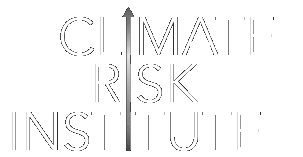Details
Learning Objectives
This course explores collective leadership models by challenging individualist leadership paradigms and experimenting with more inclusive approaches. In this course, learners think critically about what collaboration means in the context of complex sustainability challenges like climate destabilization and steering transition to a positive climate future.
Specific skills developed through this course include:
Collaborative Engagement - Engage with frameworks and approaches for collaborating with stakeholders and engaging communities for impact.
Transition Leadership - Identify collective leadership capabilities needed for transitioning toward positive climate futures.
Inclusive Leadership- Question the roles of power, diversity, and inclusion in leading collaborative climate action.
Just Transition - Critically explore the implications for a just transition to positive climate futures.
Biomimicry Applications - Apply the concept of biomimicry to fostering and evaluating cooperative relationships.
Certification / Credential
Climate Adaptation Fundamentals Micro-credential: Elective Courses Professional Certificate in Management & Leadership: Elective Courses
Climate Adaptation Competency Framework (CACF, 2021)
Alignment URL: https://can-adapt.ca/sites/weadapt.org/files/aln-competencyframework_2021_1.pdf
In this course, Collaborative Leadership for Climate Action, the focused domains include:
Climate Adaptation Leadership:
- Climate-informed Change Management
- Climate Adaptation Leadership
- Climate-informed Professional Practice
Working Together in Climate Adaptation:
- Cultural Agility & Safety
- Facilitating Adaptive Conversations
- Engagement in Climate Action
- Collaboration
Course Outline / Syllabus
In navigating our climate challenges, no single group holds all the answers. Understanding and engaging with these complexities requires embracing networks of relationships. You'll delve into collective leadership models, challenging traditional individualist paradigms and fostering more inclusive approaches.
Throughout the course, you'll critically analyze collaboration amidst sustainability challenges like climate destabilization. Who's driving the transition? Who's affected? Who's left out? Conventional leadership often sidelines marginalized voices, hindering progress. Collaborative leadership prioritizes engagement with those most impacted.
In this course, you will:
- Explore collective leadership frameworks and your role in collaborative efforts
- Analyze collaboration amidst sustainability challenges through guest insights, case studies, and diverse resources
- Participate in asynchronous exercises, live sessions, and peer learning
- Engage in assignments, readings, videos, and active participation in online forums
Assessment Methods
Assessment will be comprised of two components: (1) a Participation mark and (2) a Summative Task mark.
(1) Participation in weekly discussion forums, exercises, and live zoom sessions (50%)
(2) An exercise worth 50% of the final grade will be assessed and calculated based on criteria outlined below.
![[object Object] avatar](https://infpuhjaxslesnsctyaj.supabase.co/storage/v1/render/image/public/images/headers/0fcda0a39cf566b4bdec1155f74a3d03256ac7cebf410b6468c8ece6f89fde54?width=368&height=368&resize=contain) Collaborative Leadership for Climate Action
Collaborative Leadership for Climate Action


